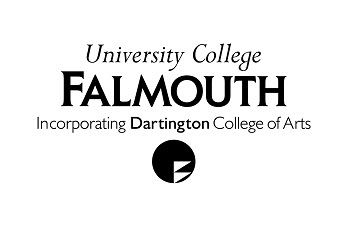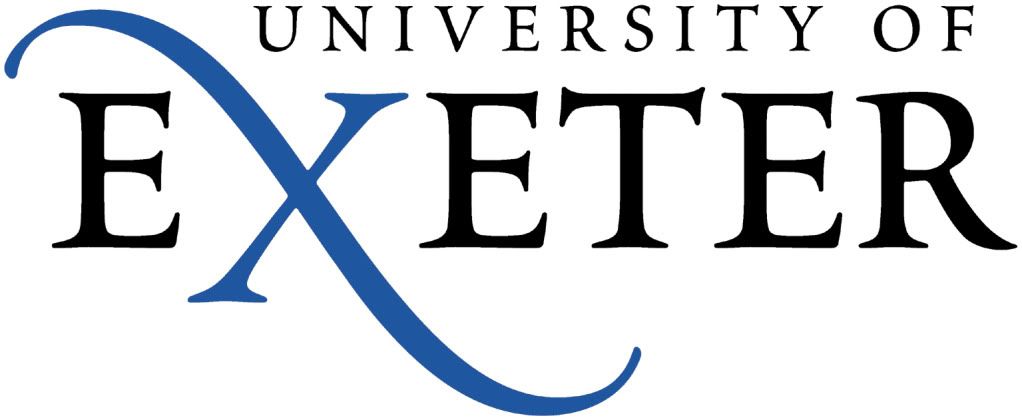Last Thursday I attended the Archives and Special Collections Board meeting, which is held here at Tremough twice a year. It is a chance for representatives from the Archives and Special Collections Services from Tremough and our sister Service at the main Exeter Campus in Devon, as well as academic representatives, to catch up on what the service has been doing and achieving, and what it plans to do in the next few months. Unfortunately the turn-out wasn't quite what we'd hoped for, but as I was in charge of the Minutes I couldn't complain as it was difficult enough as it was trying to keep up with discussions and all the ideas flying around! Those present included representatives from the Camborne School of Mines, the Exeter History Department, the University College Falmouth Theatre Department, and the Head of Corporate Development for UCF.
Being new to the Service, it was interesting for me to hear the objectives that had been set out in the previous meeting in June, and how or if these had been achieved. This gave my understanding of the context of the Service another level, and showed me how far the Service had come on in that time. But for me the highlight of the meeting was the Archivist's Report, through which Sarah was able to inform the Board of all the latest goings on. An action from the last meeting was that user statistics should be presented to the Board annually. One of my first tasks when I started here was to use the statistics collected over the last four years to create graphs and charts showing how use of the service has grown and evolved, and so I got to present my work to the Board. There were some really encouraging figures, for example the number of enquiries last year had gone up by 60% from the year before, and the proportion of UCF and UoE student and staff users is steadily increasing. The number of teaching sessions had also gone up by 450%! Comparing the total usage of the collections, it was clear that those collections which are catalogued are being used much more than those that aren't, which demonstrates the importance of cataloguing. It was great being able to present these positive findings, as they really demonstrate the worth of the Service.
There was a good deal of discussion over fundraising and the idea of an Archive and Special Collections Fund, and there were several ideas for digitisation projects. Plans were also made for special show-casing events aimed seperately at staff and students, so that academics can incorporate the Service into their teaching, and students can learn how to use archives and perhaps use our them for their own research.
Coming out of the meeting, it felt like there were an awful lot of actions to get through before the next one in a few months, but it was nevertheless a really valuable experience getting feedback from the broad range of representatives present.
Being new to the Service, it was interesting for me to hear the objectives that had been set out in the previous meeting in June, and how or if these had been achieved. This gave my understanding of the context of the Service another level, and showed me how far the Service had come on in that time. But for me the highlight of the meeting was the Archivist's Report, through which Sarah was able to inform the Board of all the latest goings on. An action from the last meeting was that user statistics should be presented to the Board annually. One of my first tasks when I started here was to use the statistics collected over the last four years to create graphs and charts showing how use of the service has grown and evolved, and so I got to present my work to the Board. There were some really encouraging figures, for example the number of enquiries last year had gone up by 60% from the year before, and the proportion of UCF and UoE student and staff users is steadily increasing. The number of teaching sessions had also gone up by 450%! Comparing the total usage of the collections, it was clear that those collections which are catalogued are being used much more than those that aren't, which demonstrates the importance of cataloguing. It was great being able to present these positive findings, as they really demonstrate the worth of the Service.
There was a good deal of discussion over fundraising and the idea of an Archive and Special Collections Fund, and there were several ideas for digitisation projects. Plans were also made for special show-casing events aimed seperately at staff and students, so that academics can incorporate the Service into their teaching, and students can learn how to use archives and perhaps use our them for their own research.
Coming out of the meeting, it felt like there were an awful lot of actions to get through before the next one in a few months, but it was nevertheless a really valuable experience getting feedback from the broad range of representatives present.


No comments:
Post a Comment